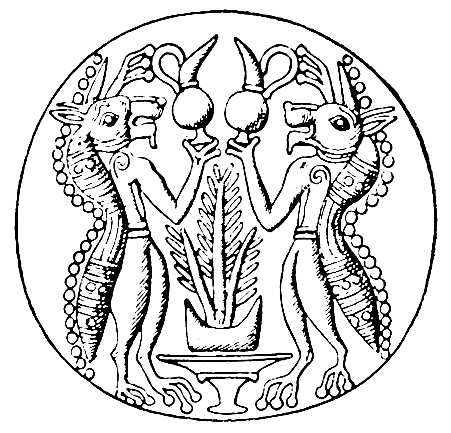|
Christine E. Morris
Christine E. Morris is an Irish classical scholar, who is the Andrew A. David Professor in Greek Archaeology and History at Trinity College Dublin. An expert on religion in the Aegean Bronze Age, her work uses archaeological evidence to examine the practice and experience of belief. She is a member of the Standing Committee for Archaeology for the Royal Irish Academy. Career Educated at Churchill College at the University of Cambridge, and at University College London, Morris worked for the British School at Athens prior to her first appointment at Trinity College Dublin in 1994. She is the Andrew A. David Professor in Greek Archaeology and History and an expert on the Aegean Bronze Age, with a particular focus on material cultures, including ceramics and figural sculpture, as well as inter-cultural relationships and religious practice. In collaboration with Alan Peatfield, Morris has argued that Minoan religion should be viewed as experiential and shamanistic, and that perha ... [...More Info...] [...Related Items...] OR: [Wikipedia] [Google] [Baidu] |
Irish People
The Irish ( ga, Muintir na hÉireann or ''Na hÉireannaigh'') are an ethnic group and nation native to the island of Ireland, who share a common history and culture. There have been humans in Ireland for about 33,000 years, and it has been continually inhabited for more than 10,000 years (see Prehistoric Ireland). For most of Ireland's recorded history, the Irish have been primarily a Gaelic people (see Gaelic Ireland). From the 9th century, small numbers of Vikings settled in Ireland, becoming the Norse-Gaels. Anglo-Normans also conquered parts of Ireland in the 12th century, while England's 16th/17th century conquest and colonisation of Ireland brought many English and Lowland Scots to parts of the island, especially the north. Today, Ireland is made up of the Republic of Ireland (officially called Ireland) and Northern Ireland (a part of the United Kingdom). The people of Northern Ireland hold various national identities including British, Irish, Northern Irish or som ... [...More Info...] [...Related Items...] OR: [Wikipedia] [Google] [Baidu] |
Minoan Religion
Minoan religion was the religion of the Bronze Age Minoan civilization of Crete. In the absence of readable texts from most of the period, modern scholars have reconstructed it almost totally on the basis of archaeological evidence of such as Minoan paintings, statuettes, vessels for rituals and seals and rings. Minoan religion is considered to have been closely related to Near Eastern ancient religions, and its central deity is generally agreed to have been a goddess, although a number of deities are now generally thought to have been worshipped. Prominent Minoan sacred symbols include the bull and the horns of consecration, the labrys double-headed axe, and possibly the serpent. The old view was that, in stark contrast to contemporary cultures in Egypt, Mesopotamia and Syria, Minoan religious practice was not centred around massive formal public temples. However, it now tends to be thought that the Minoan "palaces" and perhaps also the smaller "villas", were themselves th ... [...More Info...] [...Related Items...] OR: [Wikipedia] [Google] [Baidu] |
Alumni Of Churchill College, Cambridge
Alumni (singular: alumnus (masculine) or alumna (feminine)) are former students of a school, college, or university who have either attended or graduated in some fashion from the institution. The feminine plural alumnae is sometimes used for groups of women. The word is Latin and means "one who is being (or has been) nourished". The term is not synonymous with "graduate"; one can be an alumnus without graduating (Burt Reynolds, alumnus but not graduate of Florida State, is an example). The term is sometimes used to refer to a former employee or member of an organization, contributor, or inmate. Etymology The Latin noun ''alumnus'' means "foster son" or "pupil". It is derived from PIE ''*h₂el-'' (grow, nourish), and it is a variant of the Latin verb ''alere'' "to nourish".Merriam-Webster: alumnus .. Separate, but from the s ... [...More Info...] [...Related Items...] OR: [Wikipedia] [Google] [Baidu] |
Irish Women Archaeologists
Irish may refer to: Common meanings * Someone or something of, from, or related to: ** Ireland, an island situated off the north-western coast of continental Europe ***Éire, Irish language name for the isle ** Northern Ireland, a constituent unit of the United Kingdom of Great Britain and Northern Ireland ** Republic of Ireland, a sovereign state * Irish language, a Celtic Goidelic language of the Indo-European language family spoken in Ireland * Irish people, people of Irish ethnicity, people born in Ireland and people who hold Irish citizenship Places * Irish Creek (Kansas), a stream in Kansas * Irish Creek (South Dakota), a stream in South Dakota * Irish Lake, Watonwan County, Minnesota * Irish Sea, the body of water which separates the islands of Ireland and Great Britain People * Irish (surname), a list of people * William Irish, pseudonym of American writer Cornell Woolrich (1903–1968) * Irish Bob Murphy, Irish-American boxer Edwin Lee Conarty (1922–1961) * Irish McCal ... [...More Info...] [...Related Items...] OR: [Wikipedia] [Google] [Baidu] |

